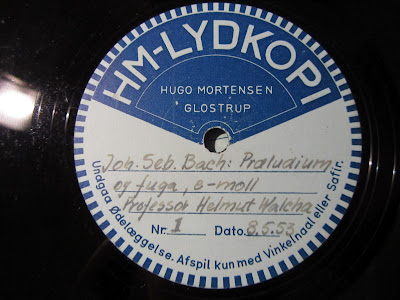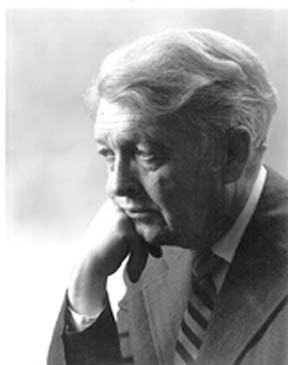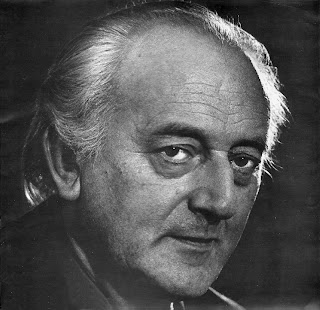Unique recordings with Helmut Walcha and Günther Ramin

I am proud to be able to present three very unique organ recordings. Thanks to a generous contribution from Claudia Zachariassen, the owner of the Marcussen organ building firm, I can present two live recordings with Helmut Walcha and Günter Ramin. They were recorded on two Marcussen organs: at the concert hall at the Danish "Statsradiofonien" (Danish Broadcasting Corporation, on its former location in Copenhagen) May 8th 1953 with Helmut Walcha playing, and the other during the inauguration concert of the organ in Göteborg concert hall April 28th 1937 with Günther Ramin. They were cut on acetate discs most likely from a radio transmission and presented to the former owner of Marcussen Sybrand Zachariassen (1900-1960), so they most likely only exist in this exact copy. The third recording is a contribution from David C. Kelzenberg (Iowa, USA). It is Helmut Walcha playing the “Ricercar á 6” from “Das Musichalishes Opfer” by J. S. Bach. This recording was done privately...





